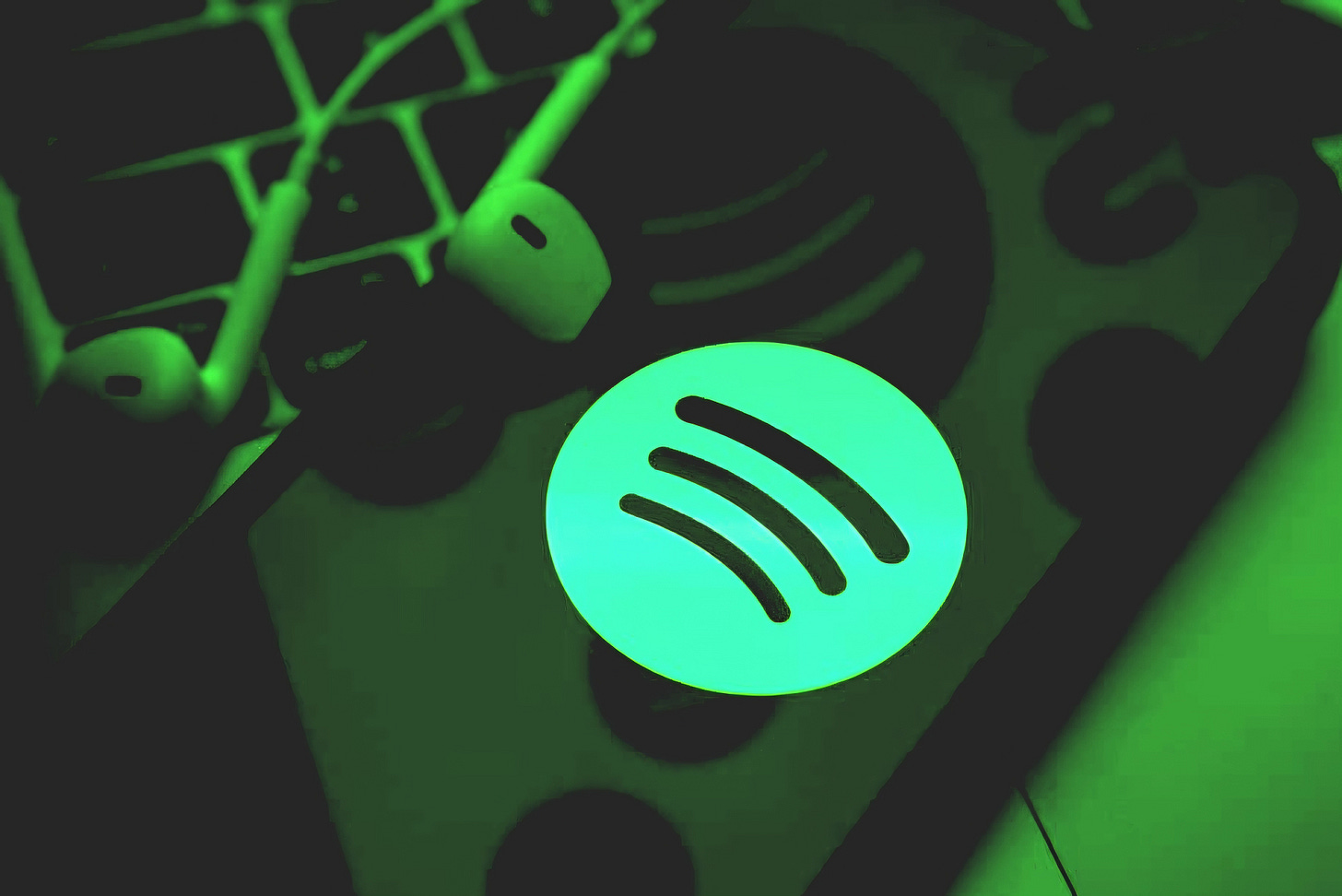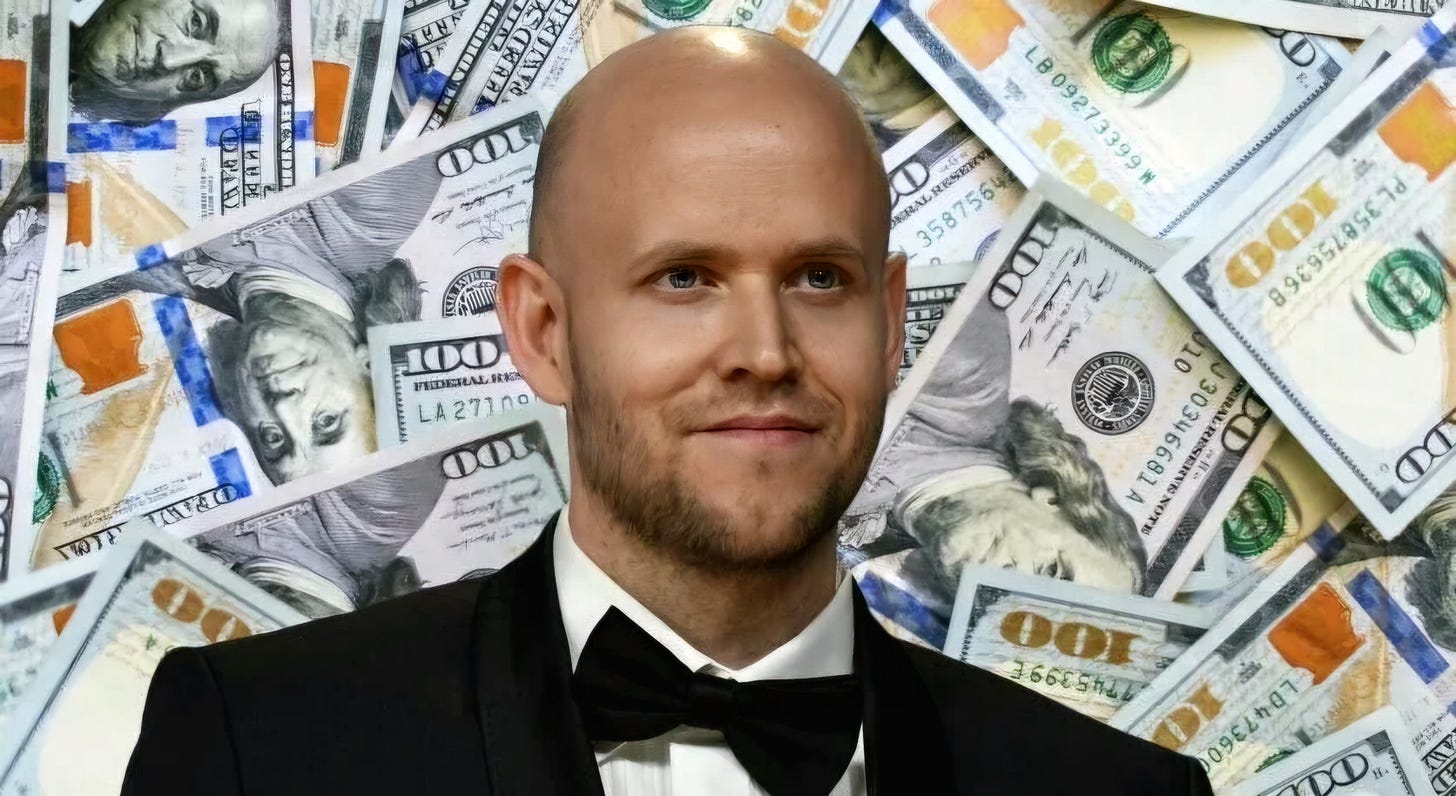Spotify's Shady Tactics | Ghosts in the Machine👻🎶
How Spotify’s “Perfect Fit Content” Exploits Artists and Listeners...
Imagine scrolling through a Spotify playlist expecting to discover exciting new artists, only to find that the music you're hearing isn't created by actual musicians but by anonymous "Ghost Artists." These tracks are often attributed to pseudonymous creators and are part of Spotify’s internal program called Perfect Fit Content (PFC):
A scheme designed to maximize profits by replacing real artists with low-cost, royalty-free stock music.
This revelation was uncovered in Liz Pelly’s Harper’s Magazine investigation, exposing the troubling ways Spotify is re-shaping music culture.

The Rise of Ghost Artists
The concept of “ghost artists” first surfaced in 2017 when indie labels noticed Spotify playlists being flooded with tracks from unknown musicians. These tracks were often linked to stock-music companies like Epidemic Sound or Firefly Entertainment and appeared on mood-based playlists such as "Deep Focus" and "Ambient Relaxation." Despite their millions of streams and verified artist badges, these "artists" had no biographies, websites, or searchable presence outside Spotify.
By 2022, an investigation by Sweden's Dagens Nyheter revealed that just 20 songwriters were behind over 500 ghost artist profiles, generating millions of streams. Internal Slack messages later confirmed that Spotify had partnered with production companies to seed these tracks into playlists, effectively reducing royalty payouts to real artists and boosting profit margins.
The Perfect Fit Content Program
Spotify launched the PFC program in 2017 as a cost-saving measure. By filling playlists with cheap-to-license tracks from production companies, Spotify could reduce its royalty obligations while maintaining user engagement. These tracks were specifically designed for background listening by engaging in genres like jazz, lo-fi hip-hop, ambient, and classical which were all heavily targeted.
Former employees revealed that Spotify editors were encouraged, and sometimes pressured to include PFC tracks in curated playlists.
Over time, resistant editors were sidelined and replaced by those willing to comply. By 2023, hundreds of playlists were dominated by PFC tracks, deeply eroding opportunities for independent artists to gain visibility.

The Impact on Artists
The PFC program has devastating consequences for working musicians:
Lost Opportunities: Real artists are being pushed out of key playlists in favor of ghost content.
Unfair Compensation: Musicians creating PFC tracks often sign buyout contracts, forfeiting royalties and ownership rights for a flat fee.
Creative Stagnation: Artists producing PFC music describe the process as "joyless," with strict guidelines to create bland, playlist-friendly content.
One jazz musician likened his PFC gig to "wedding or corporate work," calling it "brain-numbing" and lamenting how it prioritized simplicity over creativity. Another composer described it as “a race to the bottom,” where music is stripped of its artistic value and reduced to functional background noise.
The Listener’s Loss
For listeners, the rise of ghost content severs the connection between artist and audience. Playlists once celebrated for discovery now serve as vehicles for anonymous filler tracks designed solely to keep users on the platform. As Liz Pelly writes, this shift normalizes music as "interchangeable playlist fodder," eroding the cultural richness that makes music meaningful.
Moreover, this trend paves the way for AI-generated music to dominate streaming platforms. Companies like Epidemic Sound are already integrating AI tools into their production processes, raising concerns about a future where human creativity is sidelined entirely.
Vinyl Culture’s Vision for Change
At Vinyl Culture, we believe in restoring integrity to music culture by championing authentic artistry and meaningful connections between listeners and creators. Here’s how we’re tackling these challenges:
Promoting Intentional Listening: We encourage listeners to explore full albums and engage deeply with music rather than passively consuming playlists.
Supporting Independent Artists: Through features, interviews, and curated recommendations, we will spotlight under-represented voices in music.
Advocating for Fair Practices: We stand with initiatives that push for equitable streaming royalties and transparency in playlist curation.
Building a Community: Our listening events and forums will foster genuine connections between artists and fans.
What You Can Do
As a listener, you have the power to shape the future of music culture. Here are some steps you can take:
Support Artists Directly: Purchase albums or merchandise directly from musicians.
Curate & Share Your Own Playlists: Take control of your listening experience by creating playlists that reflect your personal taste.
Engage Beyond Streaming: Attend live shows or explore local music communities to discover new music.
Join the Conversation: Share your thoughts on how streaming platforms should better support artists.
A Call for Accountability
Spotify’s PFC program highlights a troubling shift in how streaming platforms prioritize profits over artistry. By flooding playlists with ghost content, they not only exploit musicians but also rob listeners of authentic discovery experiences. It’s time for us as fans, creators, and advocates to demand better.
Let’s work together to ensure that music remains a vibrant cultural force rather than background noise optimized for profit margins.
Join us at Vinyl Culture as we continue exploring ways to preserve and evolve authentic music culture in an age dominated by algorithms and corporate interests. Together, we can make a difference.🫱🏼🫲🏽
In the coming weeks, we'll delve deeper into topics like strategies for meaningful music discovery in the digital age. Together, we can ensure that music remains a vibrant, diverse, and integral part of our lives.😃






